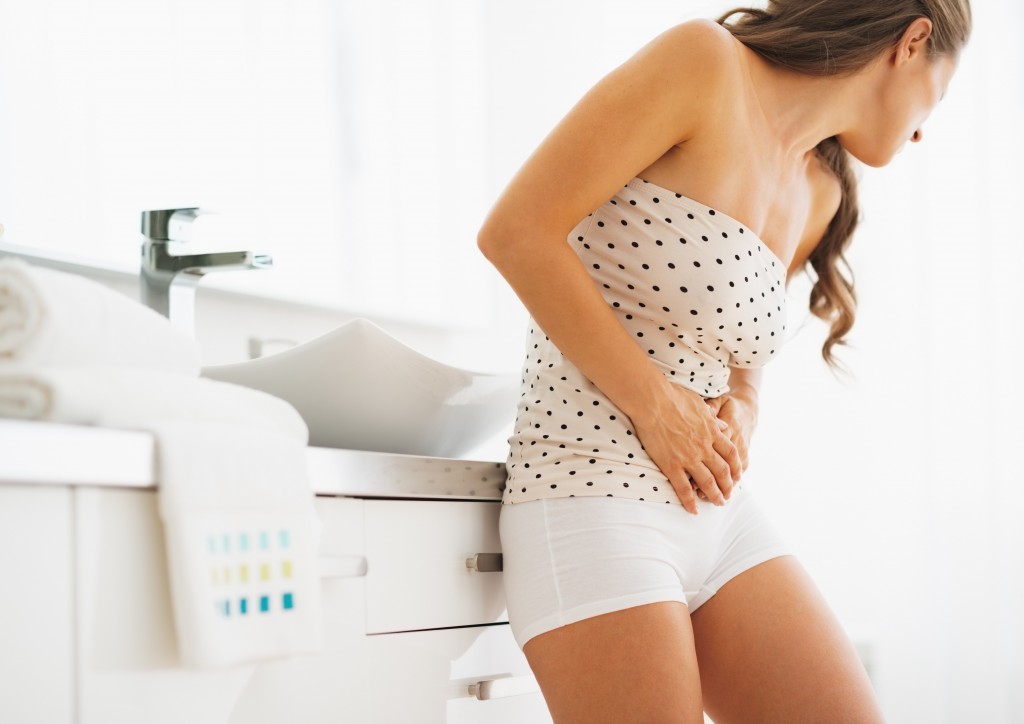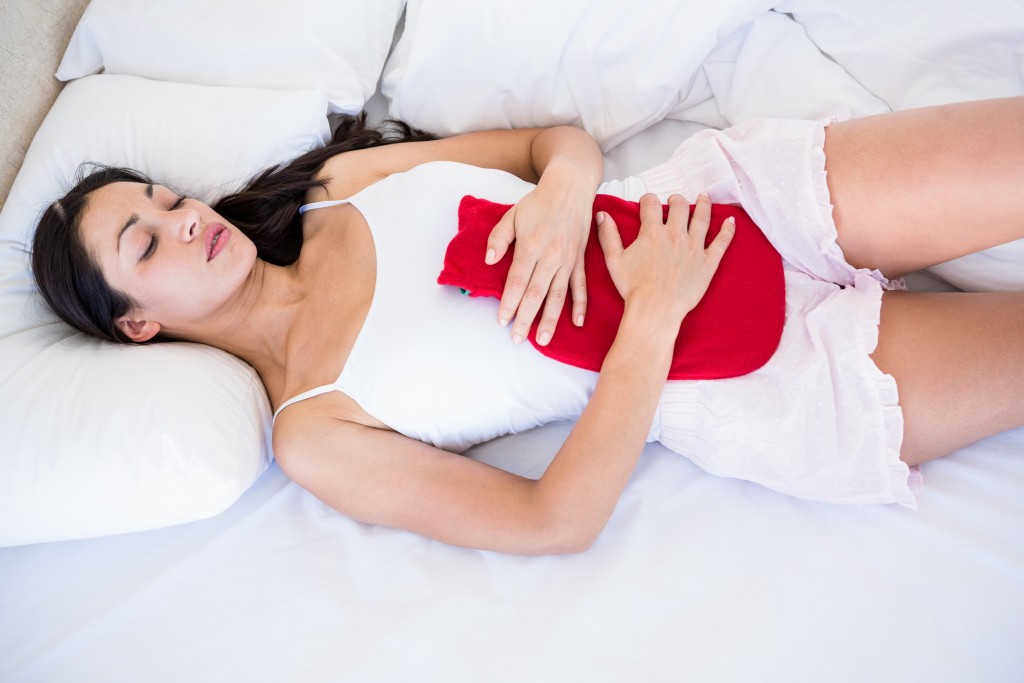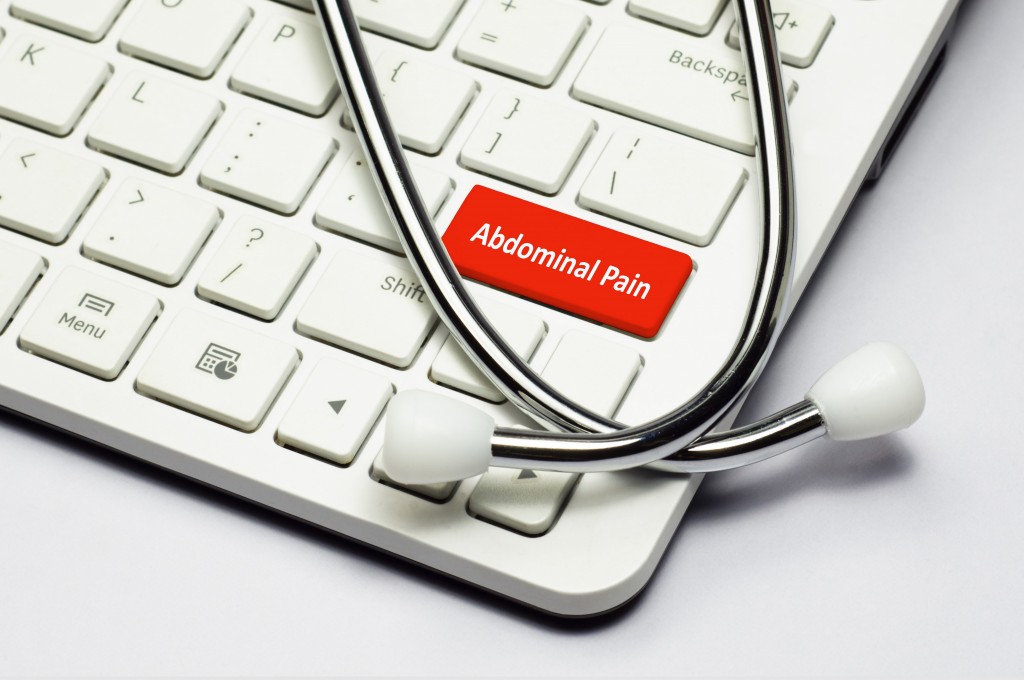“Does ovulation cause cramps?”
This isn’t the first time we hear this, nor will it be the last. Yes, ovulation may cause cramps, but when they’re very severe and cause unbearable discomfort, then something more serious must be going on. Since most women experience different degrees of pain, it can be difficult to say for sure if it’s normal, and a visit to your ob-gyn will be the only sure way to identify a potential problem with your reproductive system.
Many of our readers have sent our expert a myriad of questions about their bad stomach cramps. We’ve selected the most notable ones and compiled a list to help you understand what may be causing your cramps when you ovulate.
1. Is Cramping a Sign of Ovulation?
Everything started a few months back. My menstrual cycle has always been pretty much painless, except for some cramps, bloating and breast tenderness while on my period. Recently I’ve started to notice a shooting, stabbing pain in the right side of my abdomen. It lasts for about a few seconds, and comes back throughout the day. Within 24 hours, there’s no more pain – but it comes back the next month, and the next.
I’ve noticed I have this pain only during the middle of my cycle. I have a 29 day cycle, and I’m supposed to ovulate on the 15th or 16th day. Does ovulation cause cramps? I’ve been having my period for years, and never experienced any such symptoms!
Expert Answers:
Ovulation cramps are a normal part of most women’s menstrual cycle. However, the extent of the pay varied widely – some experience a twinge in the abdomen, which lasts for a few seconds only; others feel pressure in their pelvic area, which lasts for a few hours; others have excruciating pain, which can last as little as a few seconds, or as much as 12 hours.
Moreover, there’s no specific pattern that dictates when the pain happens, and how intense it is. You could have stabbing pain this month, and little or no discomfort the next. Your problem may as well be no problem at all, even if you haven’t experienced such pain in years. But it’s good that you’ve taken the initiative to seek medical advice.
If the pain lasts less than 24 hours, and then goes away on its own, then there’s probably nothing to worry about. And since it coincides with the time you’re supposed to ovulate, I wouldn’t worry too much. Mittelschmerz (a German word for “middle pain”) is common and happens to many women. It’s the result of the stretching of the membrane that covers your ovary just before the egg is released. It can feel as a twinge when the follicle bursts and released the egg; or it can feel like your period is coming, although it isn’t.
There may be several other reasons for the pain you’re experiencing. One of them would be appendicitis, which causes sharp pain in the right side of your abdomen. However, the pain is consistent, and doesn’t happen so regularly, like in your case.
Other causes are:
- endometriosis;
- pelvic inflammatory disease;
- irritable bowel syndrome;
- implantation bleeding;
- sexually transmitted diseases (trichomoniasis, gonorrhea, and Chlamydia);
- uterine or vaginal cancer;
- uterine fibroids;
- ovarian cysts.
Talk to your doctor and have this issue further investigated. If it’s just ovulation that’s causing the pain, then you can want to keep a heating pad handy next time you ovulate.
2. What’s the Difference Between Ovulation Cramps vs. Implantation Cramps?
Hello,
I’m a 29-year-old soon-to-be-married girl who’s having a really embarrassing problem. I’m getting married in two months, however, my fiancé and I have always been sexually active. Two days ago I’ve had some really bad stomach cramps. They lasted for five minutes or so, then went away. This happened around noon. That night I woke up with the same cramps, but they got worse.
This morning I’ve also noticed some pink spots on my underwear. My AF will be in town in about three days. I keep a calendar, so I know I’m not misremembering the date. I’ve never had my menstruation earlier than predicted, so this seems pretty weird. The cramps feel like I’m ovulating (sharp pain in my belly). Is there a difference between the two? Is the spotting a sign of pregnancy?
Expert Answers:
Ovulation and implantation occur at different times of your menstrual cycle. Depending on the length and regularity of your cycle, you may ovulate anywhere from day 10 to day 20. The average is day 14. Your period sounds pretty regular, which means you’re ovulating regularly, a sign that you’re fertile and can have beautiful babies.
In your case, your period is only three days away, and was five days away when you experienced the cramps for the first time. So you weren’t ovulating. However, implantation cramps and bleeding may coincide, at least partially, with the time your period should arrive. They both happen between 6 to 12 days after conception. If you have a 28-day menstrual cycle, and conceived on the 13th day, you can experience implantation spotting with cramps as early as the 19th day, or as late as the 25th day, which is only 3 days away from your next period.
Implantation bleeding is typically very light – just a few spots on your underwear. Some women have bleeding that’s a bit heavier than that, although not significantly. The bleeding lasts for a few months, but it can progress to one day in some cases. The cramps can last for a few days.
Except for the timing, there isn’t a very significant difference between implantation and ovulation bleeding. I recommend waiting around 13 more days (3 days until your next scheduled period + 10 days) before you take a pregnancy test. That is, if your period doesn’t come. Note that blood tests can usually identify hCG in your body much faster, so if you’re impatient to know if you’re pregnant or not, you can wait around 6-7 days and take one.
3. Is It Normal to Have Bad Cramps When Ovulating?
I got my first period three months ago, so I’m pretty new to this and don’t know who to ask. I always have some really uncomfortable cramps for some time now. They happen ever since I got my period. They don’t happen at the same time every month. Last month they occurred about 17 days after my period came. This month I experienced them earlier, about 14 days after my period. I’ve read something about ovulation, and the release of the egg, but the article said it should happen regularly.
If I was ovulating, were those cramps normal? Do you think there may be anything wrong with me? I appreciate your advice!
Expert Answers:
Congratulations on getting your first period! Your body is now going through many changes as you gradually become a woman, so you will probably experience an extremely wide range of symptoms including stomach cramps, heavy vaginal discharge, and an increase in your breast size.
Ovulation is the release of the egg from one of your ovaries. Each month, 15 to 20 eggs mature inside your ovaries, but only one of them reaches maturity. The egg will be released from the ovary it has developed in – it can be either your left or right one, and they alternate every month, although not in a specific pattern (e.g. the egg may be released by your right ovary for two consecutive months, and by your left ovary the next month).
The egg is located in a fluid-filled sac that develops on your ovary, called follicle. The follicle bursts to release the egg, causing the membrane covering your ovary to stretch and put pressure in your belly area. The release of blood and other fluids can also cause discomfort to some degree.
Since you’ve been having your periods for a relatively short time, your ovulation doesn’t occur regularly, and hence you experience cramps at different times of the month. As you grow up and your body matures, you should get your AF more regularly. This will result in regular ovulation, so you’ll know when to expect the cramps.
I advise you to talk to your mother about the abdominal pain you’re having, as you may want to check with your ob-gyn to see if there is anything wrong with your reproductive system. Even if there’s nothing to be concerned about, regular visits to a specialist will help you stay at peace and safe in the knowledge that you’re perfectly healthy, and there’s nothing wrong with you. If your periods are painful, an endocrinologist will prescribe you medication to help ease the pain and reduce discomfort down to a minimum.
If it’s your first time at a gynecologist, you may want to choose a female doctor, as this will make you feel less inhibited and more responsive to instructions.




